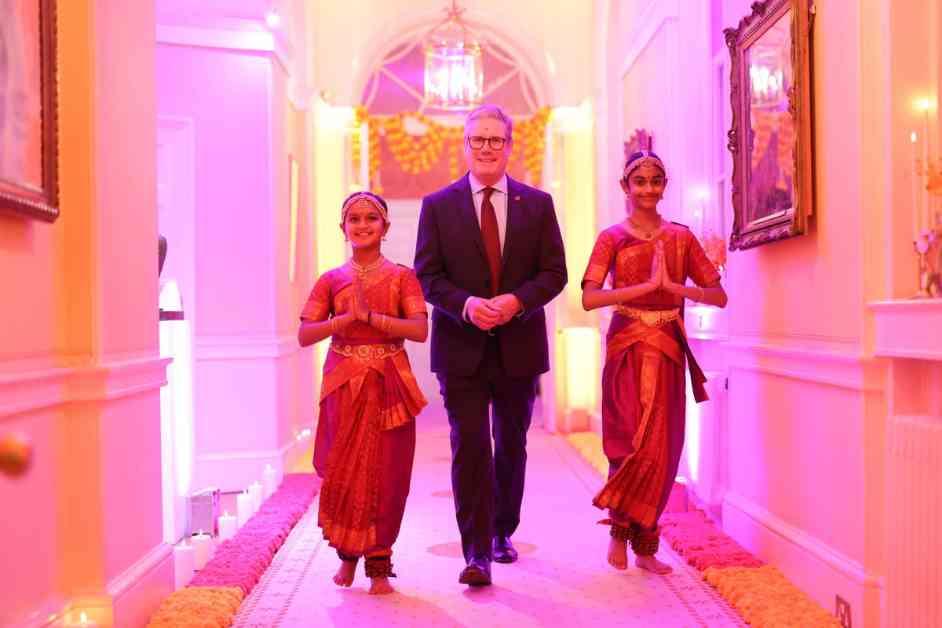Downing Street recently issued an apology to the British Hindu community for mistakenly serving meat and alcohol at their annual Diwali celebration. While Hinduism does not explicitly prohibit the consumption of alcohol or meat, many Hindus choose to abstain from these items. The event, which has been held for the past 15 years, gained more attention under the leadership of Britain’s first Hindu Prime Minister, Rishi Sunak.
Conservative MP Shivani Raja expressed her concerns and sadness regarding the serving of meat and alcohol at the celebration, stating that it showed a lack of understanding of the customs and traditions held dear by many British citizens. In response to the backlash, a Downing Street spokesperson acknowledged the mistake and promised that such an oversight would not occur again in the future.
The Prime Minister, Sir Keir Starmer, welcomed various communities celebrating Diwali at the reception and highlighted the significant contributions of the British Hindu, Sikh, and Jain communities to the country. He emphasized the government’s alignment with shared values such as hard work, ambition, and aspiration.
The incident at the Diwali celebration serves as a reminder of the importance of cultural sensitivity and awareness when organizing events that cater to diverse communities. It underscores the significance of respecting traditions and customs that hold meaning for individuals and groups, especially during festive occasions like Diwali.
Moving forward, it is essential for event organizers to take into account the preferences and dietary restrictions of attendees to ensure that everyone feels included and respected. By learning from mistakes and committing to greater cultural competence, organizations can create more inclusive and meaningful experiences for all participants.
In conclusion, the apology issued by Downing Street reflects a recognition of the need to uphold cultural values and practices, particularly during celebrations that hold significance for various communities. It serves as a valuable lesson in the importance of cultural awareness and sensitivity in event planning and execution.












